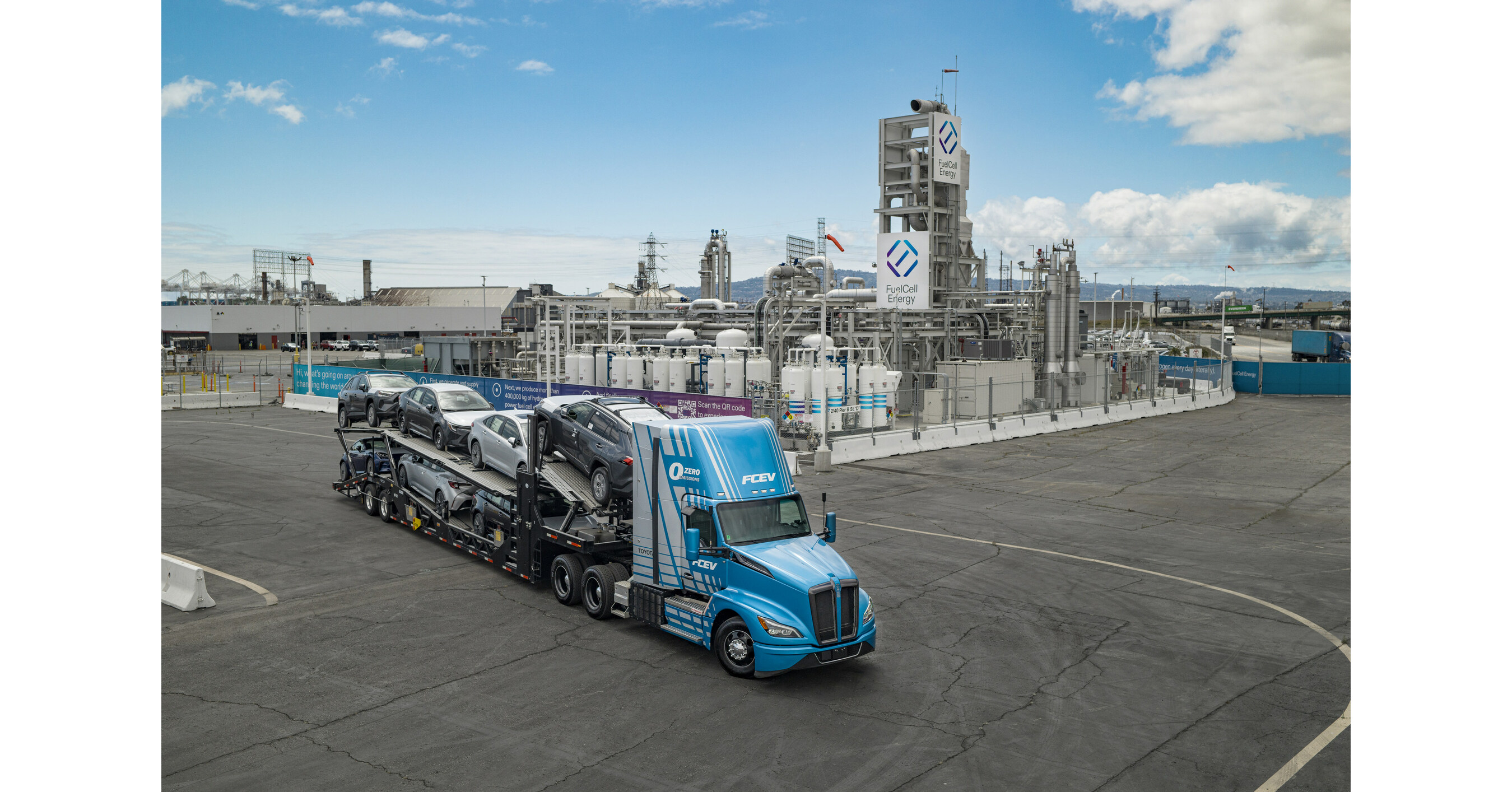
The partnership between FuelCell Energy and Toyota resulting in the 'Tri-gen' system is indeed a remarkable achievement that signifies hope in addressing climate change. This innovative technology holds great promise for revolutionizing our approaches to energy production and transportation.
A Foundation Built on Collaboration
FuelCell Energy, a leader in green energy tech, teamed up with Toyota, a giant in the car industry, to create the Tri-gen system. This strong collaboration combined knowledge in fuel cell tech and commitment to eco-friendly solutions. Where did they choose to set up this innovative project? The busy Port of Long Beach, California – an ideal illustration of an industry that would gain significantly from transitioning to sustainable energy.

The Power of Three: Unveiling the Tri-gen System
The Tri-gen system fulfills its name by producing three main results at once: green electricity, green hydrogen, and drinkable water. This is made possible using biogas, an eco-friendly substitute for conventional fossil fuels. Let's explore the importance of each outcome.
Renewable Electricity: The Tri-gen system generates a significant 2.3 megawatts of eco-friendly electricity, ample to fully supply power to the Toyota Logistics Services (TLS) facility at the Port of Long Beach. This not only lessens reliance on the traditional grid but also reintroduces clean energy into the system.
Renewable Hydrogen: Hydrogen, a green fuel with great promise, is an important output of the Tri-gen system. It powers both Toyota's Mirai cars and Kenworth T680 Class 8 trucks for port operations in California.
Usable Water: FuelCell Energy and Toyota's collaboration resulted in the creation of the Tri-gen system, which emphasizes resource efficiency by producing up to 1,400 gallons of usable water per day as a byproduct of hydrogen generation. This water is then repurposed for car washing operations at the TLS facility, reducing their reliance on freshwater sources.
Tom Stricker, Group Vice President of Sustainability and Regulatory Affairs at Toyota, aptly captures the essence of the project: "This groundbreaking facility shows that there are ways to reduce our emissions and burden on natural resources with scalable technology based on hydrogen."
>> In Other News: Hyzon and New Way Unveil North America's First Hydrogen Fuel Cell Refuse Truck at Waste Expo
A Beacon of Sustainability: The Impact of Tri-gen
The Tri-gen system's significance goes far beyond its innovative design. Here's a glimpse into the positive impact it creates:
Reduced Carbon Emissions: The Tri-gen system is set to reduce CO₂ emissions from the power grid by more than 9,000 tons each year. This fits well with Toyota Logistics Services' and Port of Long Beach's environmental objectives as they strive to be the world's inaugural zero-emissions port.
Promoting Clean Transportation: The Tri-gen system's clean-burning hydrogen fuel helps reduce carbon emissions in transportation at the Port of Long Beach. This could cut diesel use by more than 420,000 gallons annually, leading to a substantial enhancement in air quality.
Resource Efficiency: The Tri-gen system's capacity to produce usable water highlights a dedication to preserving resources. This not only lessens reliance on freshwater sources but also illustrates a comprehensive approach to sustainability.
Conclusion: A Call to Action
The Tri-gen system truly represents human creativity and innovation in addressing climate change. It highlights the vast potential of clean energy technologies to transform our approach to powering the world. As Jason Few, CEO and President of FuelCell Energy, aptly states: "As a company, we are living our purpose when we enable visionary customers like Toyota to decarbonize their operations and harness the energy solutions offered by hydrogen."
Continued investment in research and development is essential for advancing innovative technologies like the Tri-gen system. Government incentives that promote clean energy adoption play a vital role in driving this progress forward. Together, these efforts will help unlock the full potential of eco-friendly solutions like the Tri-gen system and pave the way for a cleaner, greener future for generations to come.
Subscribe to the newsletter
Daily decarbonization data and news delivered to your inbox
Follow the money flow of climate, technology, and energy investments to uncover new opportunities and jobs.
Latest issues
-
This $4.1M Deal Could Change Carbon Capture's Playbook
Inside This Issue 🗜️ CarbonQuest Lands $4.1M Alberta Deal on Gas Compressors 🛡️ CADO, 123Carbon, and Assure SAF Registry Join Forces to Tackle SAF Integrity Gaps ✈️ ISCC, OMV, and Airbus Partner t...
-
Can Koloma Crack Iowa's Billion-Year-Old Secret?
Inside This Issue ⛏️ Iowa's Hydrogen Rush: Can Koloma Strike Gold Before Rules Kick In? ✈️ Bentley Commits to Use 100% Sustainable Aviation Fuel for Car Airfreight 🌬️ Minister Parrott Provides Upd...
-
$47M Just Poured Into This SAF Producer
Inside This Issue 💰 LanzaJet Announces $47M in New Capital and First Close of Equity Round at $650M Pre-Money Valuation 🚢 Maersk's Ethanol Bet Could Reshape U.S. Fuel Markets 🪨 Canada Nickel and t...
Company Announcements
-
Feedstocks are Perennial Grasses and other Renewable Biomass Sources FREDERICK, Md., Feb. 18, 2026 /PRNewswire/ -- Do you know why passenger and freight planes are not using renewable biofuel? It'...
-
Vancouver, British Columbia--(Newsfile Corp. - February 25, 2026) - Q Precious & Battery Metals Corp. (CSE: QMET) (OTC Pink: BTKRF) (FSE: 0NB) ("QMET" or the "Company") congratulates Quebec Inn...
-
Carbon Direct and C2X Announce Collaboration on Pioneering Forestry Residue-to-Biofuel Project
Collaboration on C2X’s Beaver Lake Biofuels project advances biomass carbon removal and storage as a scalable climate solution, transforming Louisiana’s forestry and sawmill residues into biofuel a...
-
Carbon Direct and C2X Announce Collaboration on Pioneering Forestry Residue-to-Biofuel Project
Collaboration on C2X’s Beaver Lake Biofuels project advances biomass carbon removal and storage as a scalable climate solution, transforming Louisiana’s forestry and sawmill residues into biofuel a...